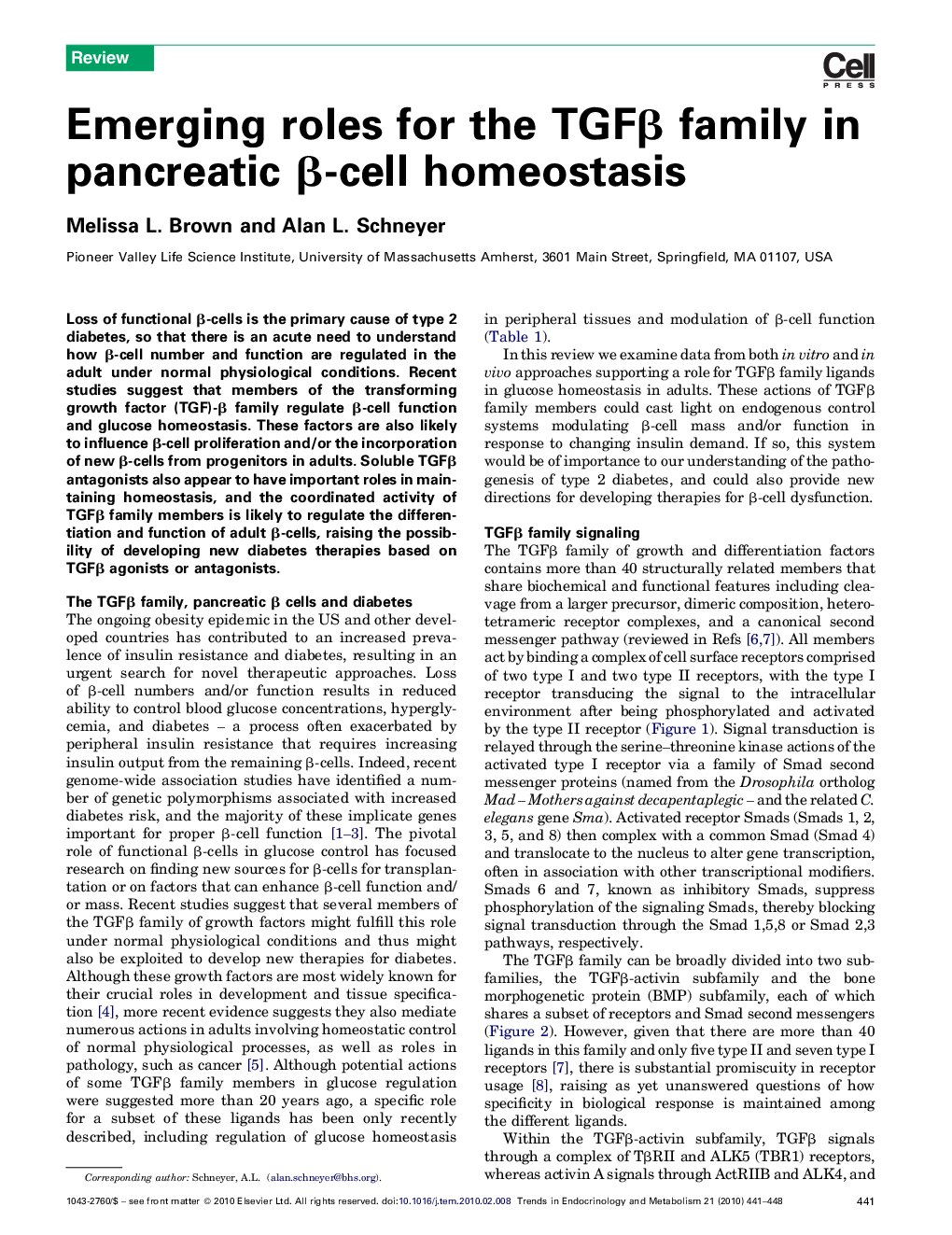| Article ID | Journal | Published Year | Pages | File Type |
|---|---|---|---|---|
| 2810573 | Trends in Endocrinology & Metabolism | 2010 | 8 Pages |
Loss of functional β-cells is the primary cause of type 2 diabetes, so that there is an acute need to understand how β-cell number and function are regulated in the adult under normal physiological conditions. Recent studies suggest that members of the transforming growth factor (TGF)-β family regulate β-cell function and glucose homeostasis. These factors are also likely to influence β-cell proliferation and/or the incorporation of new β-cells from progenitors in adults. Soluble TGFβ antagonists also appear to have important roles in maintaining homeostasis, and the coordinated activity of TGFβ family members is likely to regulate the differentiation and function of adult β-cells, raising the possibility of developing new diabetes therapies based on TGFβ agonists or antagonists.
